PIRANESI, Giovanni Battista
Tempi de Sole, e della Luna, o como altri, d’Iside e Serapide. [The Temple of Venus and Roma (erroneously called Temple of Sol and Luna)].
Rome 1758
Original etching from the “Vedute di Roma”.
395 x 550 mm.
Hind, 50 i/vi. Wilton-Ely, 149.
£1800
A particularly rare, early collection of Piranesi’s Vedute di Roma etchings. The majority are first states, before the addition of publication lines and prices. Some show the early version of the main title, which was changed upon publication, see Hind 34 Il Castel dell’ Acqua Marcia and Hind 43 Veduta della Curia Ostilia
The inking and printing of Piranesi’s earlier work is much lighter than his later style, giving a ‘silvery’ feel to his etchings. He returned to his earlier views later in his career adding more cross hatching and darkening the images in keeping with his later Vedute which are much darker. This development in his style can be seen in the difference between first and second state impressions of his Careceri d’Invenzione.
Giovanni Battista Piranesi (1720-78)
When Piranesi first arrived in Rome in 1740 there was an already established market for views of the city as Grand Tour souvenirs. His Vedute however, executed from about 1748 until the end of his life transcended mere topographical accuracy and became a heroic and tragic vision to the power of Roman architecture. Two aspects of Piranesi’s Venetian background were key to the enabling of this vision: his training in engineering and stone construction which helped engender an appreciation of the effects of massive masonry – in particular the poetic effect of ruins – and his training in stage design which cultivated a sensitivity to effects of light and great skill in both linear and atmospheric perspective.
These architectonic/scenographic concerns found heightened and highly personal expression in Piranesi’s series of fantastic prison interiors – the Carceri d’Invenzione – which first appeared in the 1740’s. Piranesi’s work as a designer is characterised by a highly imaginative eclecticism of style, a trait reflecting his belief in a creative
attitude towards the use of antique sources.


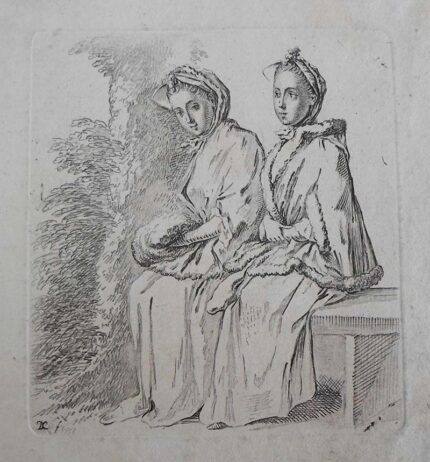
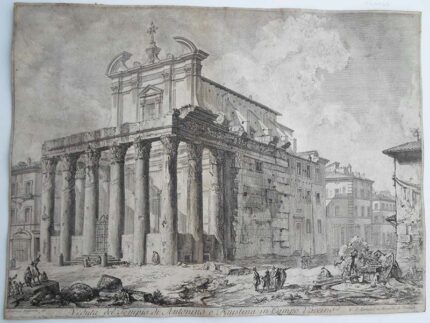
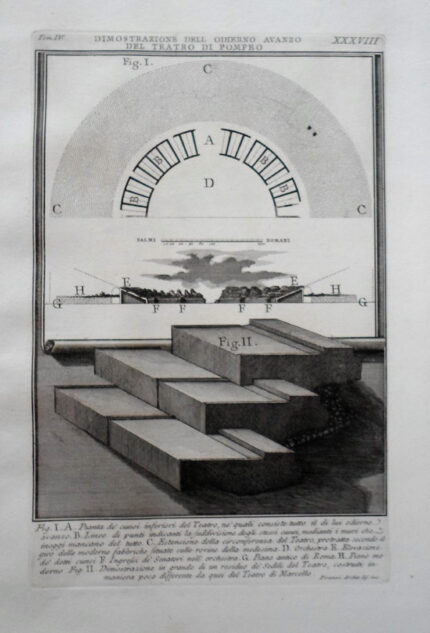
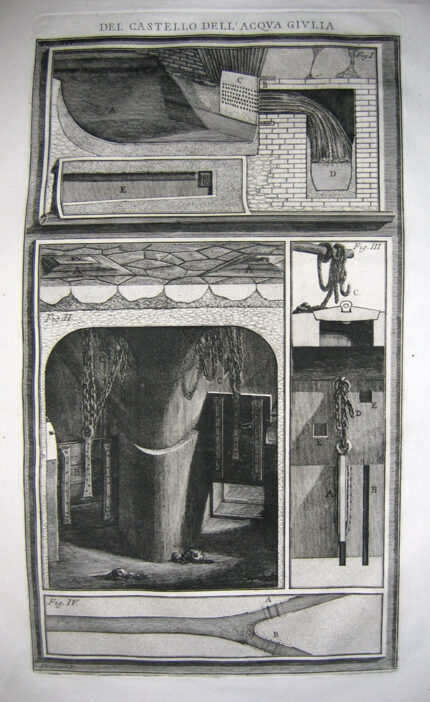
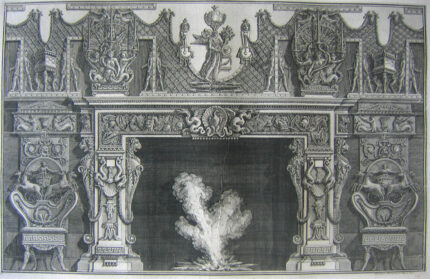
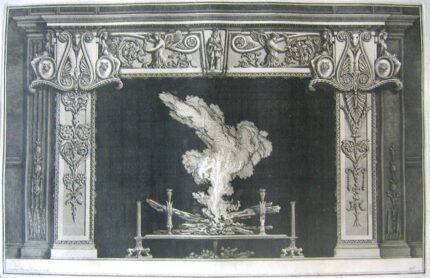
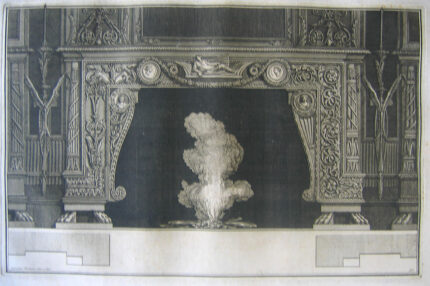
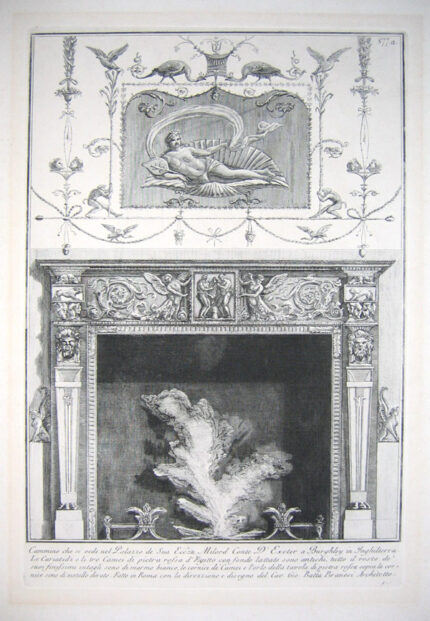
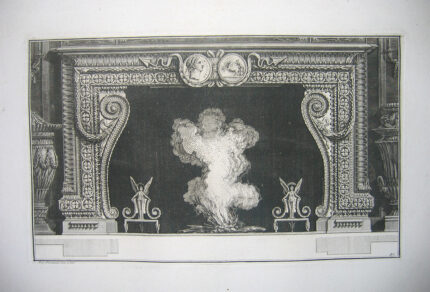
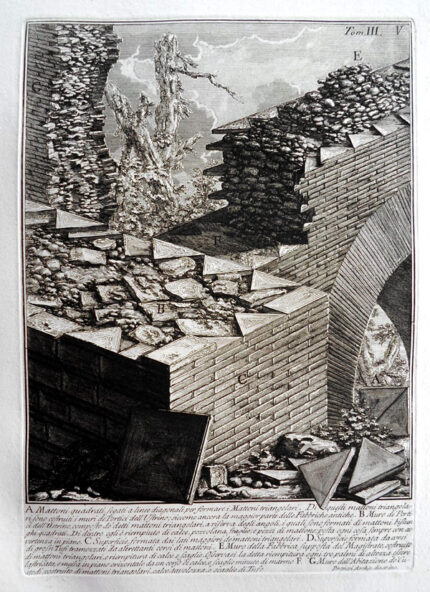










Reviews
There are no reviews yet.